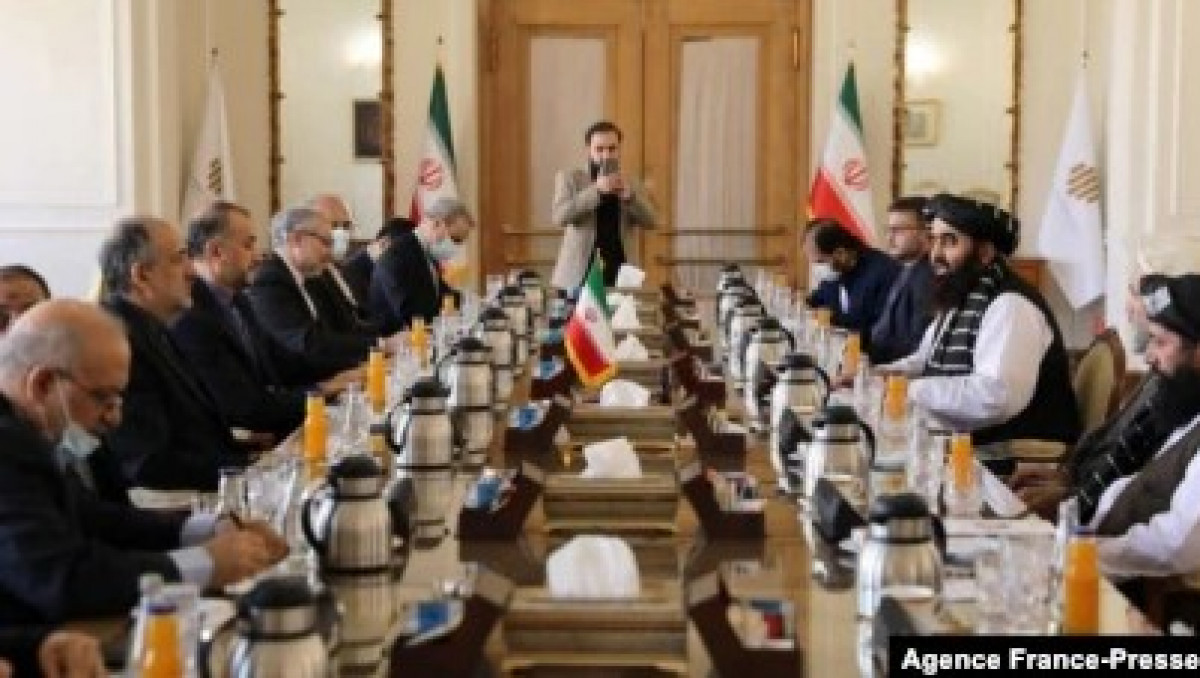 74
74
Amir Khan Muttaqi, the Taliban’s foreign minister, visited Tehran on Sunday, January 6th. The visit occurred at a time when Afghan society is engulfed by a series of crises, and the country is in dire need of foreign support to achieve stability and overcome the economic downturn. In the meantime, Afghanistan’s neighbours are keeping a close eye on the country’s unraveling developments and are concerned about the consequences of the US and its Western allies’ largely irresponsible withdrawal. Several seminars have been held in recent months to study these grave concerns.
The Taliban government has so far failed to gain international trust and advance its demand for recognition despite promises of respect for ethnic and religious minorities, consideration of regional and international concerns about the spread of terrorism in war-torn Afghanistan, and assurances that the country would not pose a threat to others. As a result, the new Afghan government has increased its diplomatic efforts to gain diplomatic recognition in Tehran.
Meanwhile, as a regional power with extensive international relations, Iran can play a critical role in facilitating the process of national reconciliation in Afghanistan following the end of foreign occupation as well as in strengthening the process of international acceptance of the new Taliban-led administration in Kabul.
In an exclusive interview with Afghanistan’s TOLO news agency last week, Iran’s ambassador to Kabul, Bahador Aminian, said that if Tehran recognises the new Afghan government, Russia, China, Central Asian states, and Arab countries will follow suit. Tehran may be able to convince others to accept the new Afghan state if the Taliban share government positions with minorities and other political groups, according to Aminian. Iran, on the other hand, is closely monitoring the progress of peace in Afghanistan, inter-Afghan dialogue, and the establishment of a broad national government in accordance with international norms before deciding whether or not to recognise the Taliban’s government.
As Aminian remarked in the interview, Tehran has not yet decided whether the prerequisites for recognising the Taliban have been met: “The new Afghanistan administration is not inclusive, and Tehran cannot accept it in this capacity.” We urge the Taliban leadership to form a genuine, inclusive government.”
The history of antagonism between Iran and the Taliban movement is well-known, although ties between Tehran and the Taliban-led government have been smoothed by the Taliban’s vow to abandon its dominant position of power. Meanwhile, the pressing need for humanitarian assistance in Afghanistan, concerted steps to boost security, refugee crises, and stopping the emergence of terrorist organisations have all benefited relations between Tehran and the Taliban-led administration.
In terms of economic links, the new Afghan leadership acknowledges the importance of partnerships with Iran. Despite barriers such as Western sanctions, money flight, local instability, and foreign investors’ fears about the country’s security, the Taliban has recognised cooperation with its western neighbor as a key to overcoming Afghanistan’s fundamental economic woes.
Meanwhile, Tehran could be a crucial macroeconomic partner for landlocked Afghanistan in a lot of sectors, offering a link between Afghans and the rest of the region as well as a gateway to international waters.
Despite massive political changes in Kabul, Mahmoud Siadatnia, the chairman of the Mashhad Chamber of Commerce, claimed in July of last year that Iran could be able to take advantage of present situations to expand trade with Afghanistan. During the American occupation, Iranian enterprises were barred from participating in technology and engineering projects in Afghanistan, but those restrictions have now been removed.
The two nations’ chambers of commerce met online for the first time since the Taliban took power in late December and the two sides agreed on a number of topics, including:
1. The establishment of an Iranian-Afghan joint chamber of trade.
2. The formation of a joint committee for investment, technical, and engineering services.
3. Bilateral trade agreements that favour tariff-friendly tariffs
4. Providing visa-free travel to entrepreneurs from both nations.
5. Signing agreements between Iran’s border chambers in Birjand, Zahedan, and Mashhad and their Afghan equivalents in Herat, Nimruz, and Farah to strengthen cross-border cooperation.
6. Establishment of a mining cooperation committee.
7. Establishment of a commission for cooperative energy cooperation.
With provisional ministers of economy and finance, as well as their advisors, in attendance, the Taliban delegation, led by Muttaqi, focused on economic cooperation with Iran. Moreover, the two sides discussed and agreed on trade and partnership in the banking, border markets, mining, and sports sectors.
Comment
Post a comment for this article